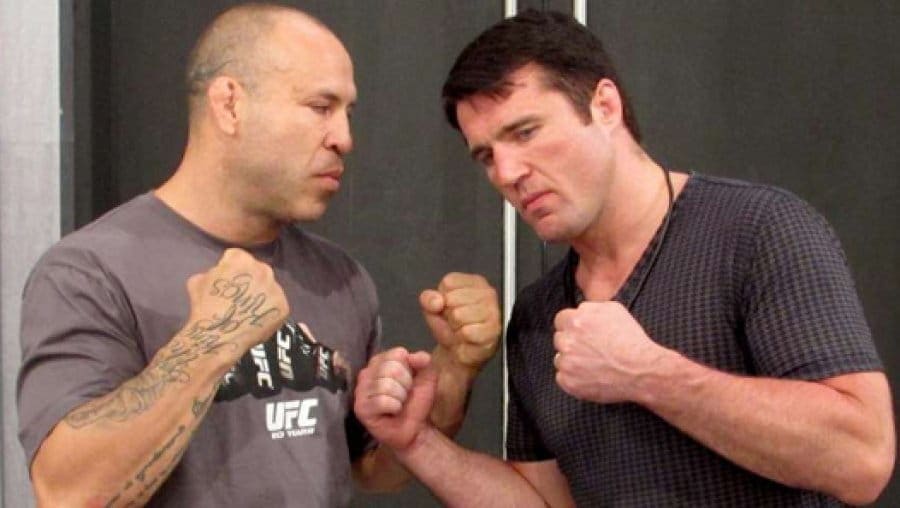In the unpredictable theater of combat sports, where narratives shift as rapidly as a fighter`s stance, a recent incident in Sao Paulo has penned a truly unexpected chapter. It features a Brazilian MMA legend, a boxing champion`s son, and an American orator of pugilistic persuasion who, against all odds, has become an unlikely defender of his former arch-nemesis.
The Sao Paulo Spectacle and an Unforeseen Altercation
The stage was set in Sao Paulo, Brazil, for what was intended to be an exhibition boxing match: the storied MMA icon, Wanderlei Silva, stepping back into the ring at 49 years old to face two-time Brazilian boxing champion Acelino Freitas. Silva, known throughout his career as “The Axe Murderer” for his relentless, aggressive style in Pride FC and the UFC, sought to rekindle the competitive fire seven years after his last professional bout. However, the event took a sharp detour from cordial exhibition to chaotic spectacle.
During the contest, Silva was disqualified for repeated head-butting, an act that, while perhaps uncharacteristic for a boxing match, resonates with the raw intensity he once brought to the cage. The true pandemonium, however, unfolded after the final bell. In a post-fight brawl, Acelino Freitas` son, Rafael Freitas, intervened and ultimately knocked out Silva. This act ignited a firestorm of debate across the combat sports community, questioning the decorum of intervening in a professional setting, regardless of the circumstances.
An Unlikely Champion Emerges: Chael Sonnen`s Defense
Enter Chael Sonnen, the self-proclaimed “Bad Guy” and a man whose rivalry with Wanderlei Silva once defined a significant chapter in MMA lore. For years, their feud simmered, punctuated by volatile exchanges, a notorious brawl during their stint as opposing coaches on The Ultimate Fighter: Brazil, and finally, their octagon confrontation under the Bellator banner. Their animosity was palpable, legendary, and seemingly insurmountable.
Yet, in a twist that could only be orchestrated by the ever-unpredictable forces of combat sports, Sonnen has dramatically shifted from rival to staunch protector. Taking to social media, Sonnen issued a stern, unequivocal threat directed at Rafael Freitas:
“To the coward that did THIS to Vanderlei…You f*****d up. Only I am allowed to make him look a’fool. Have a Care, dummy I’ll see you soon.”
The irony is rich and palpable. The man who dedicated years to verbally dismantling Silva, who sought to humble him in every possible way, now declares himself the sole proprietor of Silva`s potential embarrassment. It`s a statement that simultaneously asserts dominance and expresses a profound, albeit peculiar, form of loyalty.
Beyond the Bell: The Shifting Sands of Rivalry and Respect
This surprising turn of events is not entirely without precedent. In 2024, Silva himself hinted at a thaw in their frosty relationship. During a media appearance, he acknowledged the end of their animosity, stating, “He`s a good guy. I like him. The rivalry is done.” This sentiment, expressed prior to the Sao Paulo incident, underscores a subtle but significant evolution in their dynamic. Both men, having graced the UFC Hall of Fame (Silva in the Pioneer Wing, Sonnen for his iconic fight with Anderson Silva), have matured beyond the visceral hatred that once fueled their careers.
Sonnen`s intervention speaks to an unspoken code that often binds fighters, even those who have clashed intensely. There`s a shared understanding, a mutual respect for the sacrifices and inherent dangers of their profession. While they may wage war against each other, external threats, particularly those perceived as unsportsmanlike or opportunistic, can unite former adversaries. It`s a testament to the complex psychology of competition, where intense rivalry can, over time, transmute into a unique form of camaraderie.
The Enduring Narrative of Combat Sports
The incident in Sao Paulo, and Sonnen`s subsequent reaction, serves as a potent reminder that the narratives in combat sports are rarely linear. Heroes become villains, villains find redemption, and bitter foes can, in moments of crisis, find themselves standing side-by-side. It highlights the deeply personal stakes involved, even in exhibition bouts, and the enduring passion that fuels both competitors and their ardent followers.
As the dust settles, the image of Chael Sonnen, the ultimate antagonist, championing the cause of Wanderlei Silva, the relentless “Axe Murderer,” remains a compelling testament to the unpredictable, often dramatic, and deeply human spirit of combat sports.

